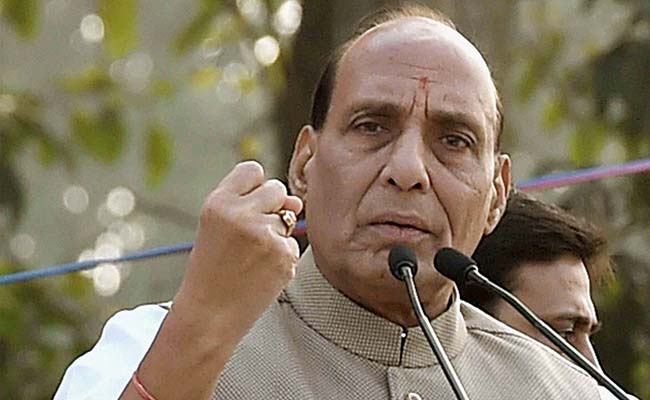The 21st century police cannot be a “brute force” but will have to be a “civilised” unit, Home Minister Rajnath Singh said today and asked the police personnel to be patient in dealing with challenging situations such as riots and protests, reports PTI.

These remarks acquire significance given the recent inhuman and unprofessional beating of young women students during the protests in the Banaras Hindu University. BHU lies within prime minister Narendra Modi’s parliamentary constituency.
Singh made the remarks while addressing the personnel of the blue dungaree-donning Rapid Action Force (RAF) at their base at Meerut, Uttar Pradesh, on the occasion of their silver jubilee (25th) anniversary.
Curb Castism and Communalism
Singh urged the security personnel to keep an effective check on the incidents in which attempts are made to break the country on the lines of casteism, religion or regionalism.
“The police of the 21st century cannot be a brute force. It will have to be a civilised force. Patience and control has to be practised and followed by police forces and the personnel on ground while dealing with hard and challenging situations like riots and protesting crowds.
“I understand sometimes police forces have to use slight force but in such situations too, prudence is required,” he said.
Singh said he has already asked the Bureau of Police Research and Development (BPRD) to look for “less-lethal” solutions to be used in policing tasks and crowd control.
The head of the countrys internal security mechanism asked the forces to apply “minimum force” and obtain maximum results.
While lauding the efforts of the RAF, he said that five new battalions of the force will be made fully operational from January 1 next year.The RAF, at present, has ten operational battalions and they are based in ten cities that are regarded as sensitive from the communal and the security point of view.
The home minister also declared that personnel of the Central Armed Police Forces (CAPFs) will be granted an annual allowance of Rs 10,000 to get stitched uniforms and the practise of providing them ready-made uniforms has been discontinued.
He said that he was “seriously” thinking about ways to ensure timely promotions to the about 10 lakh personnel of these forces.
The home minister also declared that personnel of the Central Armed Police Forces (CAPFs) will be granted an annual allowance of Rs 10,000 to get stitched uniforms and the practise of providing them ready-made uniforms has been discontinued.
He said that he was “seriously” thinking about ways to ensure timely promotions to the about 10 lakh personnel of these forces.
He also took a dig at those who say that only taking a pledge does not transform the country.
“We took a pledge in 1942 and called it the Quit India movement…we achieved independence in the next 5 years, that is in 1947. This is the power of determination and pledge,” Singh said.
It has ten battalions (of about 10,000) based in various parts of the country in order to cut down response time to counter an incident of trouble.
The ten RAF bases are in Hyderabad, Ahmedabad, Allahabad, Mumbai, Delhi, Aligarh, Coimbatore, Jamshedpur, Bhopal and Meerut.